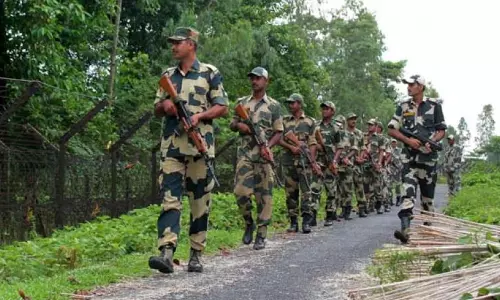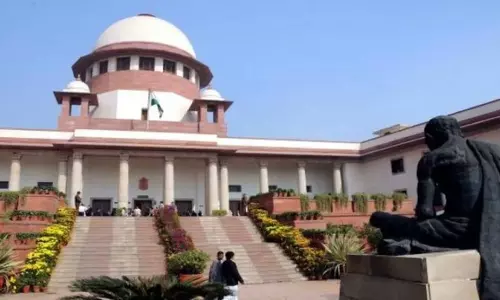Supreme Court will decide on Aadhaar law next week
It was argued that Aadhaar card is an invasion of privacy and a terrible violation of basic human rights.;

New Delhi: The Supreme Court on Monday agreed to post next week a batch of applications before a five-judge Constitution bench questioning the notifications for linking of Aadhaar before December 31 for availing various welfare benefits. Chief Justice Dipak Misra, heading a three-judge bench, which included Justices A.M. Kanwilkar and D.Y.H. Chandrachud, told attorney-general K.K. Venugopal and senior counsel Shyam Divan that the applications seeking interim stay of the notifications will be heard next week by the Constitution bench after the conclusion of hearing of the present petitions on Delhi power tussle and Parsi law. Mr Venugopal said that the government was prepared for a hearing in February next as nearly 100 notifications, issued by various departments, are under challenge. He said the committee headed by former SC judge Justice B.N. Srikrishna was likely to submit its report on data protection by February and the government will consider its recommendations. Mr Divan, however, insisted that the interim applications must be heard immediately. as the deadline of December 31, for linking of Aadhar is nearing. The court then agreed to list the applications next week.
The petitioners contended that the biometric data and iris scan that was being collected for the issuance of Aadhaar card violated the fundamental right to privacy of the citizens as personal data was not protected, and was vulnerable to exposure and misuse.
It was argued that Aadhaar card is an invasion of privacy and a terrible violation of basic human rights. They challenged the various notifications issued by the Centre insisting on Aadhaar card for availing various benefits, including noon meal scheme, scholarships, admission, domestic air travel, mobile phone etc.
The petitioners said Aadhaar scheme couldn’t be made mandatory. The Centre has attempted to inflate the figure to argue an impossibility of exclusion as the figures amount to puffery. They argued that people are denied access to basic needs such as food and adequate nutrition; mid-day meals in school; rehabilitation benefits due to the rescued bonded labourers; rehabilitation benefits due to the families of victims and the survivors adversely affected by the Bhopal gas leak etc.



